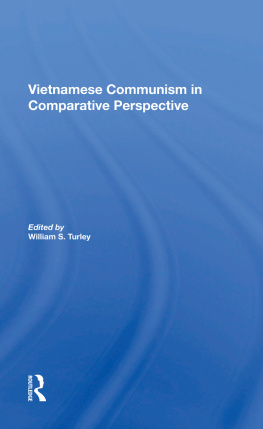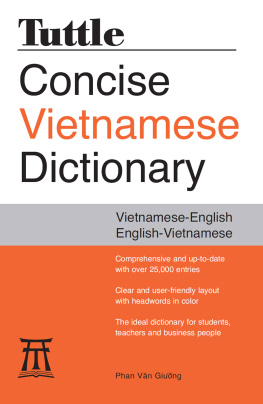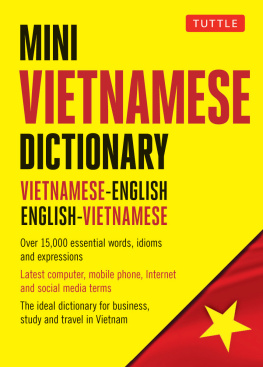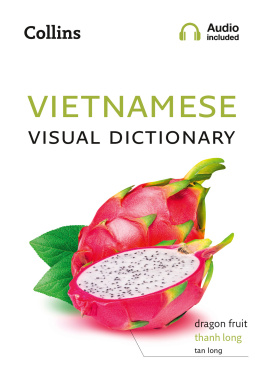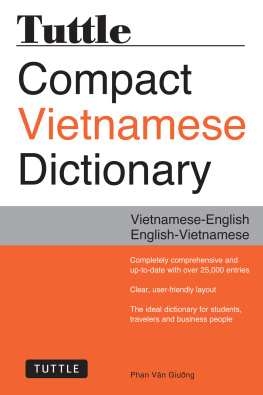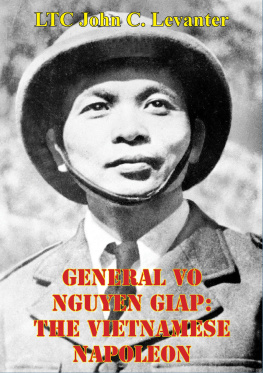Vietnamese Communism in Comparative Perspective
Other Titles in This Series
Military Power and Policy in Asian States: China, India, Japan, edited by Onkar Marwah and Jonathan D. Pollack
The Agrarian Structure of Bangladesh: An Impediment to Development, F. Tomasson Jannuzi and James T. Peach
Intra-Asian International Relations, edited by George T. Yu
Southeast Asia and China: The End of Containment , Edwin W. Mart.
India: A Rising Middle Power, edited by John W. Mellor
Indira Gandhi's India: A Political System Reappraised, edited by Henry C. Hart
The Communist Road to Power in Vietnam, William J. Duiker
Mineral Economies and Basic Industries in Asia, K. P. Wang and E. Chin
Westview Special Studies on South and Southeast Asia
Vietnamese Communism in Comparative Perspective
edited by William S. Turley
The Communist-led revolution in Vietnam reconciled borrowed doctrine with indigenous nationalism and social conditions. It is often surmised, therefore, that alongside outward similarities there would be important intrinsic differences between Communism in Vietnam and in other Communist countries. This volume of essays is the first attempt to systematically test this assumption.
French and U.S. scholars focus on how the Vietnam Communist party adapted to its environment in order to achieve and exercise power and to what degree these adaptations made the Vietnamese revolution distinctive. In their assessments, the authors reach somewhat diverse conclusions, but they agree that tendencies toward ideological conformity and creative adaptation have coexisted throughout the party's history.
William S. Turley is associate professor of political science at Southern Illinois University--carbondale. He received his Ph.D. in political science from the University of Washington and was a Ford Foundation Southeast Asia Research Associate in Vietnam in 1972-1973. His scholarly articles on Vietnam have appeared in Asian Survey, Pacific Affairs, Armed Forces and Society, Problems of Communism, Foreign Policy, and edited volumes.
Vietnamese Communism in Comparative Perspective
edited by William S. Turley
First published 1980 by Westview Press
Published 2019 by Routledge
52 Vanderbilt Avenue, New York, NY 10017
2 Park Square, Milton Park, Abingdon, Oxon OX14 4RN
Routledge is an imprint of the Taylor & Francis Group, an informa business
Copyright 1980 by Taylor & Francis
All rights reserved. No part of this book may be reprinted or reproduced or utilised in any form or by any electronic, mechanical, or other means, now known or hereafter invented, including photocopying and recording, or in any information storage or retrieval system, without permission in writing from the publishers.
Notice:
Product or corporate names may be trademarks or registered trademarks, and are used only for identification and explanation without intent to infringe.
Library of Congress Cataloging in Publication Data
Main entry under title:
Vietnamese communism in comparative perspective.
(Westview special studies on South and Southeast Asia)
Includes index.
1. Communism--Vietnam. I. Turley, William S.
HX400.5.A6V53 335.43'09597 80-18649
ISBN 13: 978-0-367-21290-2 (hbk)
This volume grew out of a conference on "Vietnamese Marxism in Comparative Perspective" organized by the Vietnamese Studies Group, a "country committee" of the Southeast Asia Council of the Association for Asian Studies. The conference was held in conjunction with the Mid-Atlantic Regional Meeting of the Association for Asian Studies at George Washington University, Washington, D.C., October 27-28, 1978.
The Group chose this conference topic because, to date, most scholarly work on Vietnam had employed an area studies approach that accentuated Vietnam's uniqueness. Group members believed that Vietnam studies could benefit from encouragement of comparative approaches, and that comparative studies could benefit from a comparative focus by area specialists on the Vietnamese case. National unification under the Communist Party in 1975-1976 provided a topical reason for limiting the focus to the currents that had dominated Vietnam's entry into the modern world. The task of shepherding this selection of papers through revision befell the editor through a combination of default and consensus that reflected neither his competence nor the Group's wisdom.
One editorial convention that may need explanation is the rule for capitalizing Vietnam's regions. Contributors needed to use the same regional designations for the traditional geocultural zones as well as for the quite different political entities created by partition in 1954. The solution was to capitalize North when referring to the territory of the Democratic Republic of Vietnam and South when referring to that of the Republic of Vietnam, and to lowercase north, center and south when referring to Bac Bo, Trung Bo, and Nam Bo or, in colonial usage, Tonkin, Annam, and Cochinchina.
Readers also will note the transliteration of Chinese names according to Pinyin rather than the more familiar Wade-Giles. The choice of Pinyin follows the recent practice of the People's Republic and the US government. No doubt non-Chinese speaking readers already have learned that Peking is now Beijing, and they easily will recognize Mao Zedong for Mao Tse-tung and Guomindang for Kuomintang. But it may help to know that Quo Moruo is Pinyin for Kuo Mo-jo; Li Dazhao is Li Ta-chao; Liu Shaoqi is Liu Shao-ch'i; and Jiang Jieshi is Chiang Kaishek. The editor is indebted to James Tai and Ikua Chou for their help in Pinyinizing Chinese names and absolves them of responsibility for any errors that remain due to his own ignorance of Chinese.
Since this volume owes its existence to a conference, acknowledgement is due the organizations and individuals that made that conference a success. The prime instigator was the Southeast Asia Council, which encouraged the country committees to hold such conferences and provided financial support from the Association for Asian Studies' Ford Grant. The Vietnam Studies Group defined the topic, laid down the general goals, and appointed an organizing committee consisting of William Duiker, the chairman of the Group at that time, Gareth Porter, and William Turley. The panels at which the papers in this volume were presented were organized by John Whitmore, David Marr, Jayne Werner, and William Turley, and the discussants were James Harrison, Mark Selden, and Kenneth Post. An award from the Executive Committee of the Association for Asian Studies supported the preparation of camera-ready copy by Elline Long.
The editor particularly wishes to express gratitude to his wife, Clarisse Zimra, for her indispensable assistance in translating two of the papers in this volume.
GEORGES BOUDAREL, matre assistant in history at the University of Paris VII, holds the degree of docteur du troisime cycle. In 1950 he joined the Viet Minh maquis in War Zone D; with a Viet Minh military unit, he travelled through central Vietnam and arrived in the north in late 1952. Prom then until April 1964 he worked for various agencies of the Democratic Republic. His principal research interest is the history of the Vietnam Communist Party with emphasis on relations with the international Communist movement and on Vietnamese national traditions. He is the translator and annotator of Phan Boi Chau's memoirs, Memoires de Phan Boi Chau , in France-Asia , XXII, nos. 3-4 (1968) and the author of Giap (Editions Atlas, 1977) and of many articles on the Vietnamese revolution.


